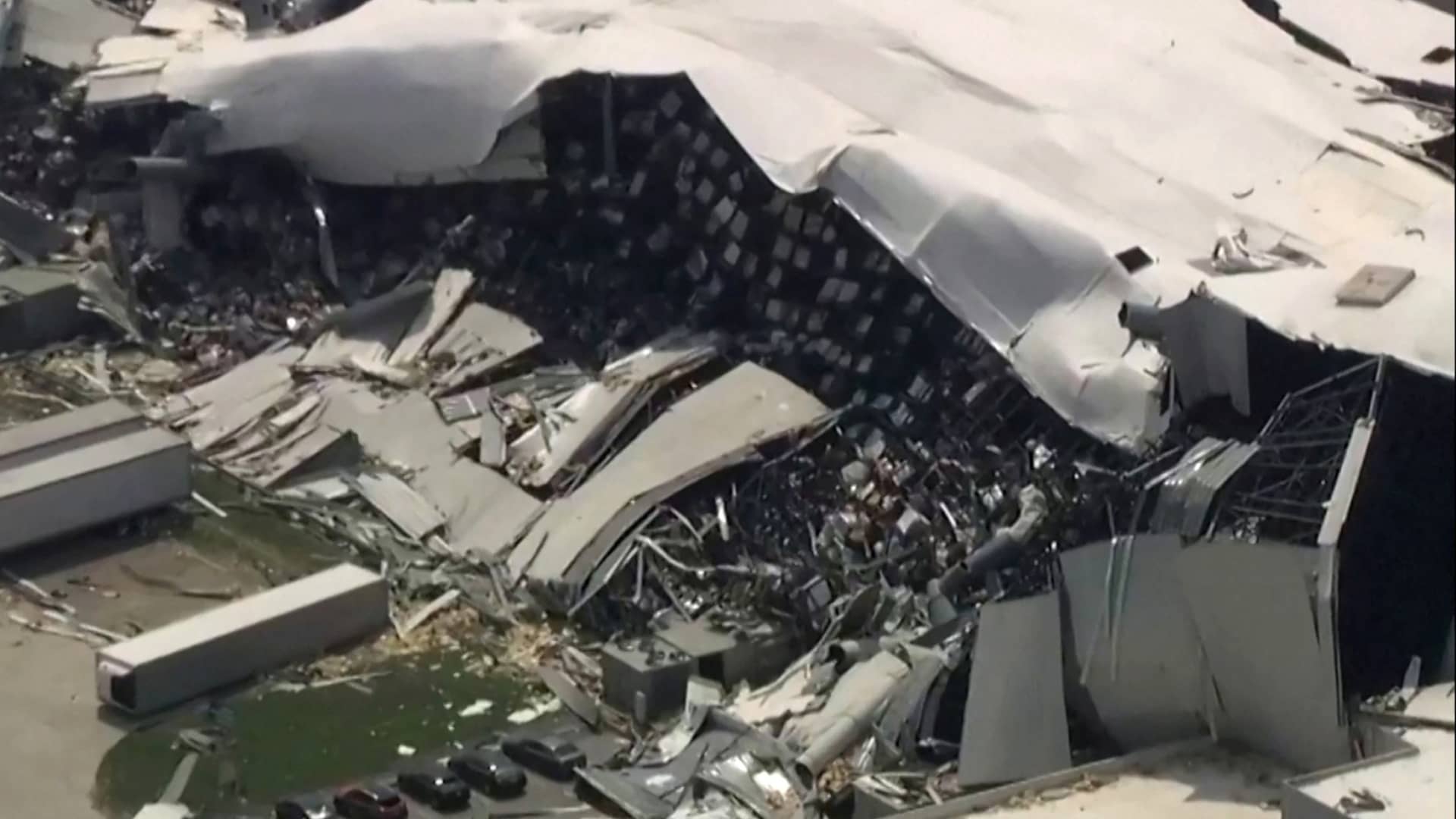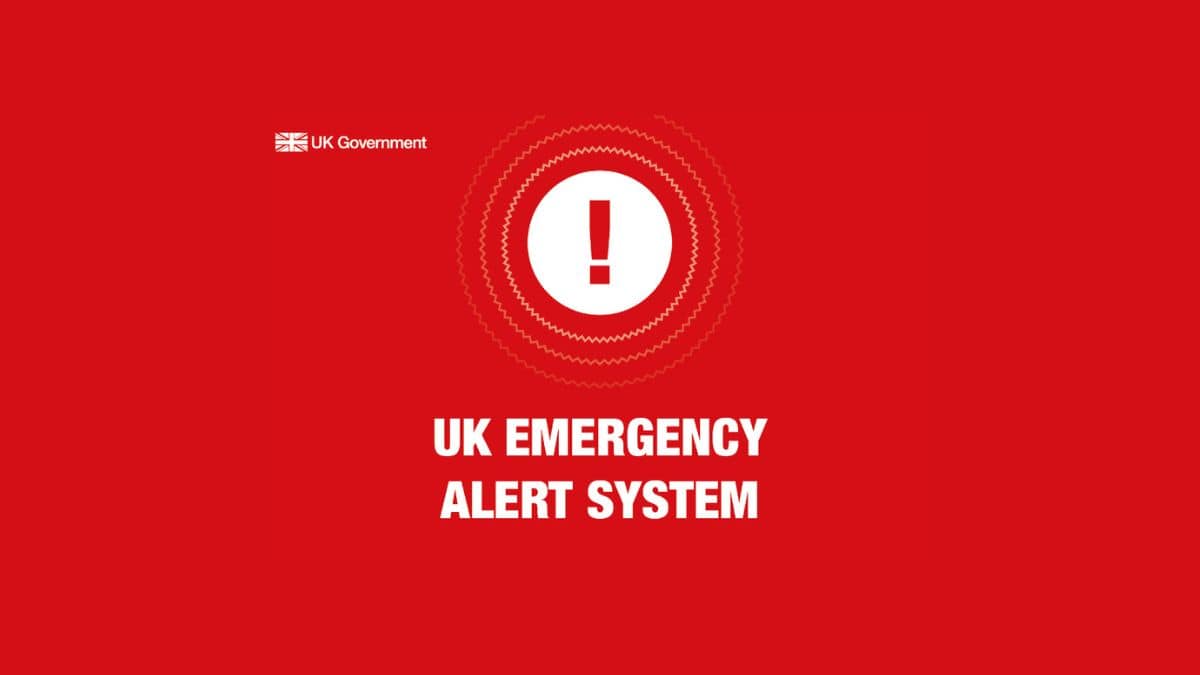
The roof of a Pfizer facility shows heavy damage after a tornado passed the area in Rocky Mount, North Carolina, July 19, 2023.
ABC Affiliate WTVD | via Reuters
Pfizer is limiting the distribution of some drugs manufactured at its plant in Rocky Mount, North Carolina after the facility was struck by a tornado last month, the company said in a letter to hospitals late Thursday.
The letter listed 12 injection products that Pfizer will only distribute through emergency orders “due to their high medical need,” effective “immediately and until further notice.”
Some injections on the list were already in short supply as of late last month, according to a database from the American Society of Health-System Pharmacists.
That includes a type of sodium chloride injection, which is used to replenish water and salt lost as a result of certain conditions. It also includes an injection used to treat metabolic acidosis, or the buildup of too much acid in the body due to ailments like kidney failure.
But the list also includes drugs that did not have supply issues as of last month, such as certain versions of heart failure injection dobutamine and dopamine, which is used to treat shock and low blood pressure caused by heart attack, infections or surgery.
Pfizer did not say how much supply of those products comes from its damaged plant.
The company previously said that the facility supplies 8% of all sterile injectable medicines used in U.S. hospitals, including anesthesia, analgesia, therapeutics, anti-infectives and neuromuscular blockers.
The drugmaker also didn’t say whether it expects the new limits to exacerbate any existing shortages plaguing U.S. hospitals or lead to new ones – a concern for some health experts.
The nation is already facing an unprecedented shortage of medicine, ranging from ADHD pills to pain medicine to injectable cancer therapies.
Manufacturing quality control issues and surges in demand, among other factors, have caused the supply problems.
Pfizer urged hospitals to check the availability of the 12 products with wholesalers or distributors and seek out alternatives before placing emergency orders.
The company added that all other products manufactured at the plant not included on the list are available in the distribution chain.
“We believe this is the most responsible approach to enable equitable distribution of their remaining inventory as well as support continuity of patient care while we work to restart production,” Meera Bhavsar, Pfizer’s sterile injectables portfolio lead, wrote in the letter.
CEO Albert Bourla said during an earnings call this week that the company is still assessing how long it will take to bring the plant back online.
Pfizer said last month that the tornado primarily damaged a warehouse facility, which stored raw materials, packaging supplies and finished medicines waiting for quality assurance.
The company added that there does not appear to be major damage to the drug manufacturing areas of the plant.







